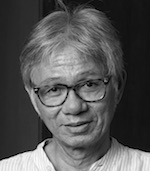 The freshman senator Joel Villanueva appears to have been taken with the false promise of lawmaking as a cure-all for society’s ills. He has proposed to add still to the amplitude of laws that languish in the books unapplied because they are ineffective or impractical or precisely inapplicable; he has chosen to make a law dealing with a particularly intractable plague – “fake news”.
The freshman senator Joel Villanueva appears to have been taken with the false promise of lawmaking as a cure-all for society’s ills. He has proposed to add still to the amplitude of laws that languish in the books unapplied because they are ineffective or impractical or precisely inapplicable; he has chosen to make a law dealing with a particularly intractable plague – “fake news”.
In the first place, “fake news” is a contradiction in terminology; it literally describes an occurrence of public interest (news) that did not occur (fake). The poor usage is resorted to probably because “false information”, while the more proper and serviceable phrase, sounds too benign for the spread and seriousness of the epidemic in question.
At any rate, let us allow the oxymoron for the purpose of this discussion. But should we also allow Villanueva to see for himself whether he could stack lawmaking to his presumably noble purpose? As it is, he has not even managed to begin to define the crime he proposes to deal with – yet he already has drawn up a schedule of penalties for it!
Surely, fake-news mongering, like any other crime, is a crime of degrees – extent of fakeness (fully fake, partly fake), shades of intent (measures of malice), and natures of complicity (concocter, purveyor, user). It should be interesting to imagine how culpabilities might be determined in recent cases involving President Duterte and his justice secretary, Vitaliano Aguirre. Remember the fake news Duterte told about a hostage’s beheading by the enemy in Marawi? And, in Aguirre’s case, the fake news about the inciting presence of oppositionist Senator Antonio Trillanes two weeks before the enemy attacked there?
Fake news is nothing new; it’s the staple of propaganda. It used to be propagated by the old-fashioned rumor mill, through a chain of mouths, although it still found its way into the news media when it suited their less than professional and more profit-oriented purposes – after all, a sensational tale makes for a sensational sale, therefore not easy to pass up.
Now we’re seeing the heyday of fake news. It was a foregone consequence of modern technology. Once the internet opened the door to that limitless information dump – cyberspace – and let everyone in, that was it. If the hope was to promote truth and freedom and equality, it has not happened, not in any consoling way. Running as it does on organized power, government is able easily to seize the advantage. It is further helped, of course, by its position in the scheme of things – as an indispensable news source and news subject.
Our case is particularly chilling. The Duterte government seizes the advantage greedily and uses it viciously. It has its own cyberspace operation, apart yet from its traditional and official operations in print and on radio and television. All these operations being not simply orchestrated but orchestrated under an authoritarian conductor, you can’t imagine what tall tales they can concoct.

I wonder whether such things occur at all to Villanueva. If not, his law would be not only selective but also exploitable as a weapon against freedom and, for that prospect alone, should be struck down. Indeed, I won’t have any lawmakers or anyone else other than me and my editors laying down the rules and standards for news – judging what news is genuine and what is fake, and what news is fit and what is unfit to print or air or post on the Net.
If anyone should take up police duty against fake news, it is us news people ourselves. In fact, it’s something we should have been doing as a matter of practice, something fundamental to it – keeping a good measure of skepticism, aggressive and relentless digging, quizzing, and verifying, and courageous reporting and opinion-making. That’s exactly how our profession is supposed to help in vetting and purifying information and in distilling issues.
Inversely, any shortcomings on those counts help allow fake news to slip through and gain currency, and gain enough currency in some cases to drive developments on an irreversible run. (One possible case is to do with Duterte’s little-challenged count of 3 million drug addicts, which he has used to justify his war against drugs – a war that has taken more than 7,000 lives.)
To be sure, we cannot be expected to do the policing alone, but, if we default, the likes of Joel Villanueva will step in. – Rappler.com